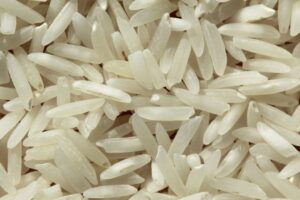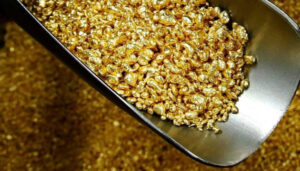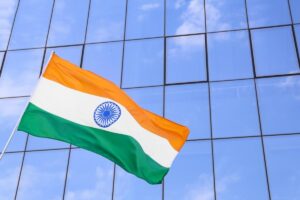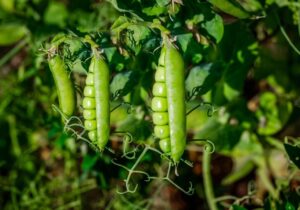
The Interdepartmental Commission on International Trade (ICIT) imposed a final anti-dumping duty of 35.7% on imports of household matches to Ukraine on April 16.
According to the ICIT’s announcement in the Uryadovyi Kurier newspaper on Friday, the decision will enter into force 30 days after the date of publication of the announcement.
The ICIT reminds that the anti-dumping investigation was initiated by the decision of April 12 against imports of matches from India and Pakistan at the complaint of Ukrainian Match Factory LLC, which has a share of more than 50% in the total production of matches in Ukraine.
At the same time, it was found that during the investigation period (April 1, 2023 – March 31, 2024), imports of matches from India were carried out at dumping prices, while there were no imports from Pakistan.
The ICIT found that during the study period (January 1, 2021 – March 31, 2024), the volume of dumped imports decreased by 47.3% in absolute terms, while increasing by 27.8% in relation to the total production of the product in Ukraine and by 26.4% in relation to consumption.
In addition, the national producer’s production volumes decreased by 58.7%, the level of production capacity utilization by 58.7%, domestic sales by 58.1%, financial result from domestic sales in dollar terms by 229.4%, in hryvnia terms by 275.3%, and profitability from domestic sales by 390.4%, which was negative.
The number of production workers also decreased by 2.4%, wages by 32.1%, labor productivity by 57.7%, investment by 100%, and warehouse balances increased by 134.1%.
The Commission found that the Republic of India has a significant export potential, which indicates the likelihood of a significant increase in the volume of dumped imports of matches from this country in the future.
The anti-dumping measures are applied to matches, except for pyrotechnic products of heading 3604, classified under code 3605 00 00 00 according to the Ukrainian Classification of Goods for Foreign Economic Activity.
Ukrainian Match Factory LLC was founded in 1995, with production facilities located in Rivne region. The design capacity of the factory is 630 million boxes of matches per year. The products are supplied to all regions of Ukraine and abroad.
According to opendatabot, in 2024, the factory suffered a loss of almost UAH 26 million (3% more than a year earlier), while net income increased by 9.7% to UAH 175.2 million. At the same time, in 2022, it had a profit of UAH 38 million and revenue of UAH 373.5 million.
The founder of the company is listed as British Paxstone Limited, and the ultimate beneficiary is Maria Fursina from Kyiv.

India has opened its market to apples from Ukraine, the head of the State Service of Ukraine for Food Safety and Consumer Protection, Serhiy Tkachuk, said on Facebook.
“We have important news in the context of opening new foreign markets for the export of Ukrainian agricultural products. Recently, the first trial batch of Ukrainian apples arrived in the Republic of India. The Ministry of
Agriculture and Farmers’ Welfare of India has confirmed the successful completion of the inspection activities of this batch. The Indian side highly appreciated the quality of Ukrainian products and their compliance with the established requirements,” he wrote on Monday.
The head of the State Service of Ukraine for Food Safety and Consumer Protection noted that foreign partners positively assessed compliance with the criteria and requirements for the selection, pre-shipment storage, processing and transportation of Ukrainian agricultural products to India.
Tkachuk thanked the Indian side for the fruitful cooperation and expressed hope that it would continue.
The Head of the State Service of Ukraine for Food Safety and Consumer Protection assured that the agency, together with the Ministry of Foreign Affairs, will continue to work to expand opportunities for Ukrainian producers. “Support for the state’s economy and Ukrainian exporters is vital in the context of a full-scale war,” he summarized.

Rice prices fell after India lifted the last of its existing restrictions on rice exports.
The price per ton of benchmark white Thai rice, which was $669 in January 2024, had fallen to $405 by last week, the Financial Times said. The decision to lift the restrictions was prompted by India’s desire to boost agricultural and food exports to boost farmers’ incomes amid a general economic slowdown in the country.
According to Commerce Minister Piyush Goyal, the plan is to increase shipments to $100 billion by 2030 from $48.15 billion in 2023-2024.
“Last year, about $50 billion worth of products were exported from India,” the minister had said earlier. – I hope to see a triple-digit figure, the $100 billion mark.”
Export restrictions were imposed in the country in 2022. As a result of the decision, the price of white Thai rice jumped to its highest since 2008. India began easing the restrictive measures in September last year. India’s rice exports, which stood at 14 million tons in 2023, could reach a record 21.5 million tons between September 2024 and October 2025, according to S&P Global estimates.
The return of Indian rice will negatively impact exporters from Pakistan, which has gained market shares in Indonesia and East Africa amid declining supplies from India. The US Department of Agriculture estimates rice exports from Pakistan for the 12 months to May 2025 at just 5.8 million tons, down 11.4% from the same period a year earlier.
India is a leading supplier of milled rice, which is in high demand in African countries. According to the International Food Policy Research Institute, Indian supplies accounted for more than 60% of rice imports of 17 African countries and more than 80% of imports of nine, including Somalia, in 2022.

India imported $2.338 billion worth of gold in February 2025, according to the country’s Ministry of Commerce and Industry. This is 62% less than in February last year and 13% less than in January this year.
In general, for 2 months of the year, gold imports to India amounted to $5.025 billion, which is 38% less than the result of the corresponding period last year.
In 2024, according to the Ministry, India imported 812 tons of gold worth $58.096 billion. India is one of the largest consumers of gold in the world, producing almost no gold itself.

Indian Prime Minister Narendra Modi said that he remains a consistent supporter of peace, and “where we can act as peacemakers, we are happy to take on this responsibility.”
“Because India is the land of Gautam Buddha and Mahatma Gandhi. And Indians are not prone to enmity and conflict. Instead, we support harmony… We stand for peace. And wherever we can act as peacemakers, we are happy to take on that responsibility,” Modi said in an interview for Lex Friedman’s podcast, published on Sunday.
According to the prime minister, he has good relations with both Ukraine and Russia.
“I have close relations with both Russia and Ukraine. I can sit with President Putin and say that now is not the time for war. And I can also say to President Zelensky in a friendly way that, brother, no matter how many people stand with you in the world, there will never be a solution on the battlefield. The solution will come only when both Ukraine and Russia sit down at the negotiating table,” the Indian Prime Minister said.
“It was difficult to find peace at first, but the current situation provides an opportunity for meaningful and productive talks between Ukraine and Russia,” Modi emphasized.
According to him, the war has brought “a lot of suffering, even the Global South has suffered”. “The world is struggling with the crisis of food, fuel and fertilizers. So, the international community must unite in the pursuit of peace. As for me, I have always maintained that I am on the side of peace. I am not neutral. I have a position, and it is peace. And peace is what I am striving for,” Modi summarized.

India has officially extended the import permit for peas until May 31, 2025, which is a positive signal for Ukrainian farmers on the eve of the spring sowing campaign, the Ukrainian Pulses and Soybeans Association reported.
The industry association reminded that despite the traditional protectionist policy and restrictions on imports of agricultural products, India periodically opens temporary “import windows”, which are actively used by Ukrainian exporters of pulses.
“Almost all of 2024, a window of opportunity remained open for Ukrainian pea producers, as India, one of the world’s largest consumers of this crop, allowed duty-free imports. Such opportunities encourage farmers to increase their acreage, especially small and medium-sized businesses that are quick to respond to changes in market conditions,” said Antonina Skliarenko, President of the Ukrainian Bean and Soybean Association.
According to her, in 2025, the area under peas in Ukraine may increase by 15%, and in 2026, we can expect an even greater increase in production of this crop.
An additional factor that increases interest in growing peas is the finalization of the opening of the Chinese market for Ukrainian products and the signing of the relevant protocol on March 6, 2025.
“This is a historic event for the Ukrainian pea production, which opens up great export prospects. Given that China introduced a 100% duty on Canadian peas on March 7, Ukrainian producers are gaining a serious competitive advantage,” the head of the business association emphasized.